Interview with Study Abroad Scholarship Recipient, Hideaki Furukawa
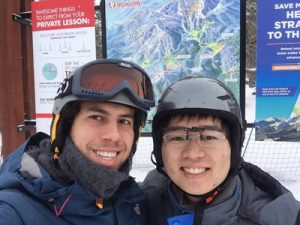
For the last few years, the Japan ICU Foundation has been offering Study Abroad scholarshipsto ICU undergraduate students who spend their junior year in the United States. This year, we awarded scholarships to five students studying at the University of California (UC) Berkeley, UC Davis, UCLA, Middlebury College and Guilford College.
We interviewed Hideaki Furukawa, who is currently studying at UC Berkeley about his life at Berkeley and his future goals.
JICUF: Please tell us a little bit about yourself.
HF: I was born in Tokyo, and lived there for about ten years. When I was in fifth grade, my father was transferred to Zurich, Switzerland, and the family moved there with him. Five years later, when I was a freshman in high school, I returned to Japan and entered ICU High School. I eventually decided to study at ICU because I was drawn to its liberal arts program and English language program. When I first started studying at ICU, I considered majoring in economics, but gradually my interest shifted to issues related to race and ethnicity in both Japan and abroad. In the end, I chose to major in sociology and minor in economics.
JICUF: Seven months have already passed since you started your studies at UC Berkeley. Has life at Berkeley been more or less what you imagined it to be like, or have you been surprised by some aspects?
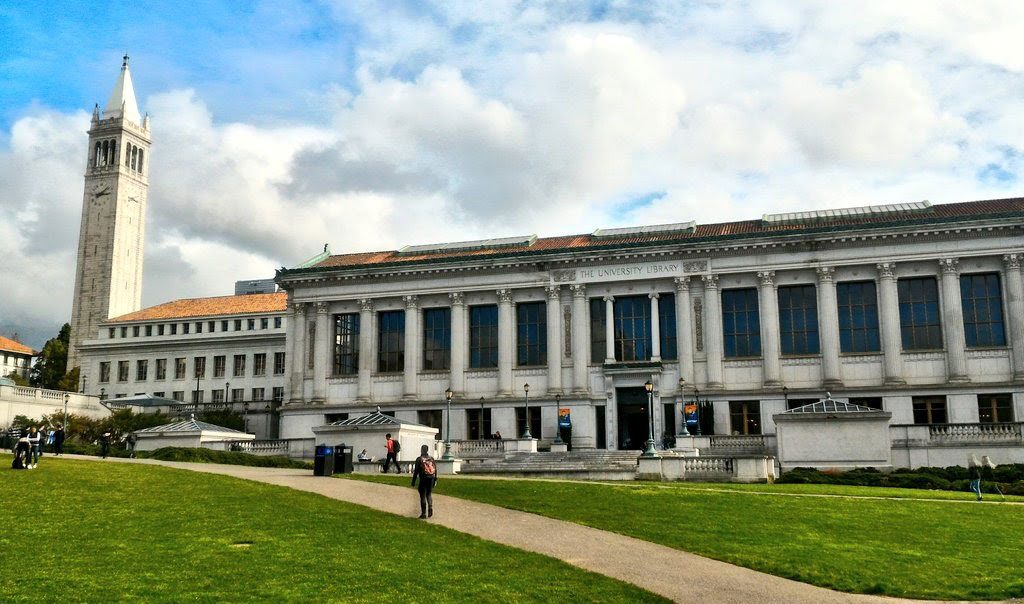
HF: Prior to my travel, I’d heard that U.S. universities gave lots of assignments and the courses were rigorous. I thought I was prepared for it, but I initially had a hard time adjusting to this change in academic environment. On the other hand, certain things about UC Berkeley are similar to ICU, and that helped me transition to the new surroundings. For example, I was surprised to find that both universities had tablet arm chairs, and shared such elements as lively discussion and active participation by students in classes, the office hour system, the course numbering system, and the major system.
I was also surprised by the casual communication that takes place everywhere in Berkeley. In Tokyo and Zurich where I’ve lived, people never speak to strangers. I was initially perplexed by the openness of people here and their tendency to ask questions and expect everyone to talk about themselves too.
Furthermore, I came here to study issues regarding race and ethnicity, but was shocked by the severity of such issues in the U.S. Because Berkeley is a liberal town and its faculty and student body are diverse, I have fortunately not experienced severe discrimination on or around campus. However, from my friends who grew up in the U.S., I learned about the discriminatory actions and speech that they were subjected to, and the tension between various minority groups. In classes, I also learned about race and ethnicity-related issues such as discrimination and poverty from an academic perspective. I was astonished by the reality which I had little knowledge of before studying abroad.
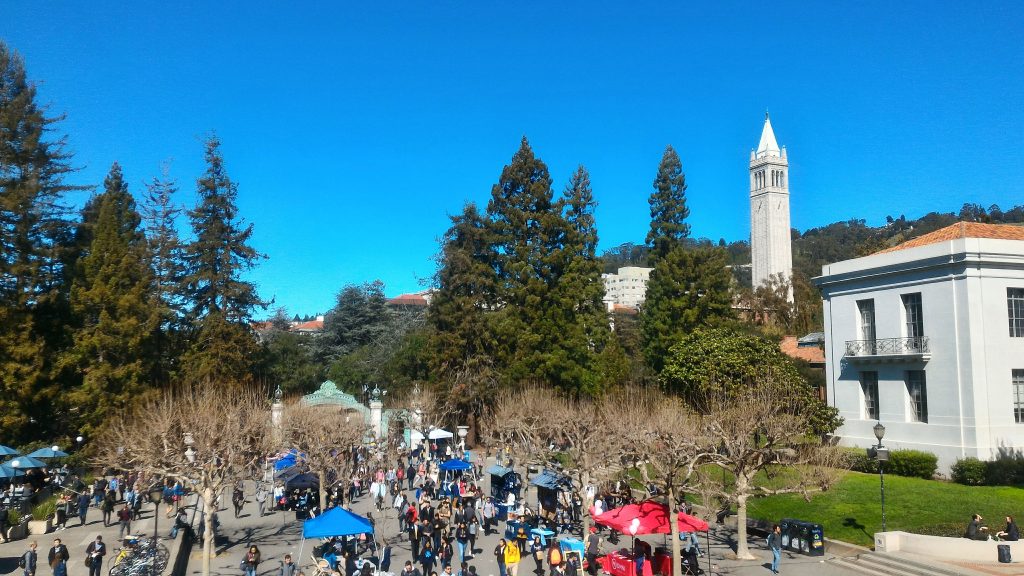
Finally, I did not expect obtaining information and goods from Japan to be this easy, based on my experience in Switzerland. Although Berkeley is close to San Francisco, I was shocked to find a Daiso (100-yen shop) right next to the campus with merchandise almost exactly like the stores in Japan, that regular supermarkets carried Japanese snacks and beverages, and that Japanese restaurants could be found everywhere. The rapid advances in information technology has also made it possible to get in touch with family and friends in Japan and elsewhere in an instant. This is a truly wonderful thing.
JICUF: What have you gained from your time in Berkeley?
HF: The greatest benefit of studying abroad was that I could delve deeper into the topics I’m interested in. UC Berkeley is a comprehensive university focused on research, and it has a sizeable faculty and abundant resources in the social science fields as well. In sociology and ethnic studies which I’m majoring in, lectures and other events are organized frequently, and facilities such as the library are state of the art. I’ve been taking full advantage of this environment in furthering my studies. Moreover, I’ve been able to study historical and social issues such as discrimination and stereotyping of Asians (including the Japanese) in the U.S. and beyond from the perspective of a minority in the U.S. I believe that this experience will enable me to view the challenges that minorities in Japan face when I return to Japan and become a part of the majority again.
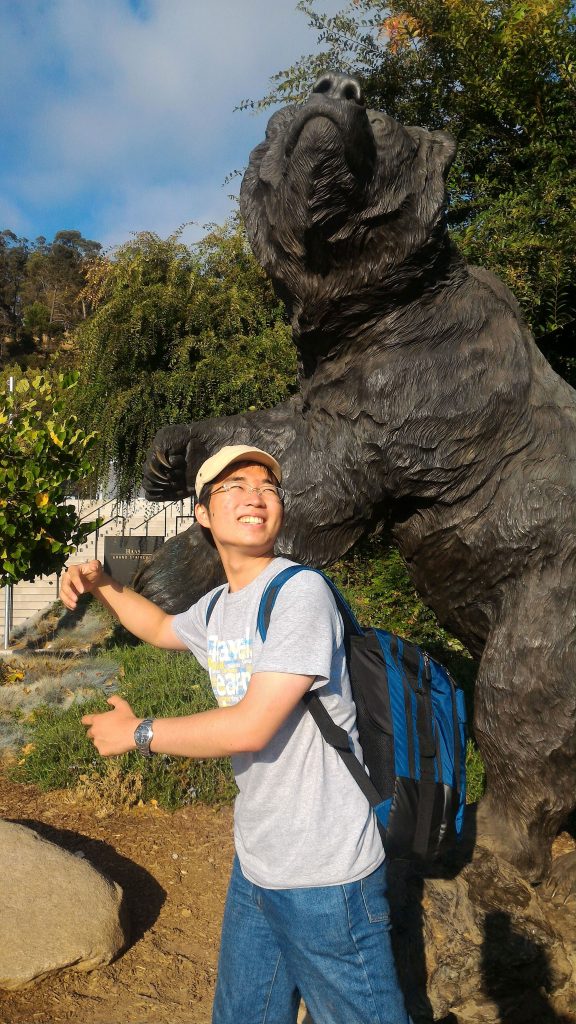
Another thing I gained from my time here is the ability to communicate with people I’m unfamiliar with. When I first started studying here, I was overwhelmed by the assertiveness of everyone around me, but I observed how they communicated and tried to emulate them. Over time, I got used to it, and now I can strike up a casual conversation with sales clerks when I go out shopping! In the dormitory and on the campus, I am able to ask other students about their majors and backgrounds, and I feel that this has helped me understand each of them better.
I’m happy to have become close to students with diverse backgrounds in the dorm and in classes through more active communication. I’ve been staying in a dorm called International House where undergraduate, exchange and graduate students as well as research fellows from all over the world live. I’ve had the opportunity to talk to people from different cultures studying various fields and become friends with them. In class, I grew close to my classmates by talking to them or through group work, and learned about the perspectives and values of students who grew up in the U.S. and are majoring in sociology or ethnic studies. It’s been a privilege to build friendships with people from different parts of the world and learn about their cultures and ways of thinking.
JICUF: What classes are you currently taking? Have you joined any clubs?
HF: In Berkeley, I have mainly been taking classes in sociology which is my major at ICU, and ethnic studies, which is a study of historical and social issues related to race and ethnicity. Berkeley operates on a semester system. In the fall semester, I took a course in interview research methods in sociology which would be useful for my senior thesis, and an introductory course in current issues concerning Asian Americans. In the spring semester, I have been taking sociology courses “Race and Ethnic Relations: U.S. American Cultures” and “Social Inequalities” as well as ethnic studies courses “Introduction to the History of Asians in the United States” and “Theories and Concepts in Comparative Ethnic Studies An Introduction.” All of these classes address the situation in the U.S. and cover content that I knew nothing about. I am trying my best to keep up, and at the same time contribute to the class from the unique perspective of a Japanese exchange student.
As for extracurricular activities, I am interning for the ASUC (Associated Students of University of California), which is Berkeley’s student council. ICU does not have a student council, and I have been trying to establish one since I was in Japan. One of the objectives of working for the ASUC is to witness firsthand how Berkley, a huge university with a long history, is communicating with its students.
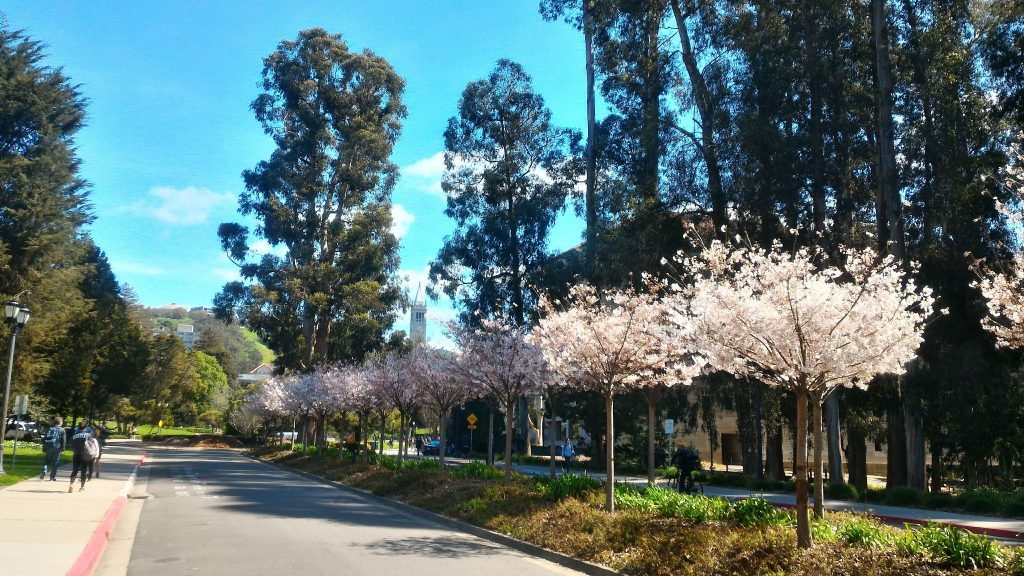
JICUF: What are your plans after graduation?
HF: As globalization progresses and people increasingly travel across borders, issues related to race and ethnicity are likely to increase in Japan too. I would like to pursue graduate studies to build upon what I learned in undergraduate studies at ICU and Berkeley. In graduate school, I would like to further explore the theories and concepts of sociology and ethnic studies, apply them to the situation in Japan, and help find solutions to various issues that arise from racial and ethnic diversification. Ultimately, I would like to establish ethnic studies as an academic field that takes an interdisciplinary approach to race and ethnicity in Japan. It is my goal to help deepen the general public’s understanding of issues related to race and ethnicity.
JICUF: Thank you, Hideaki! We hope you enjoy the last few months at Berkeley, and wish you the best in your future endeavors!



